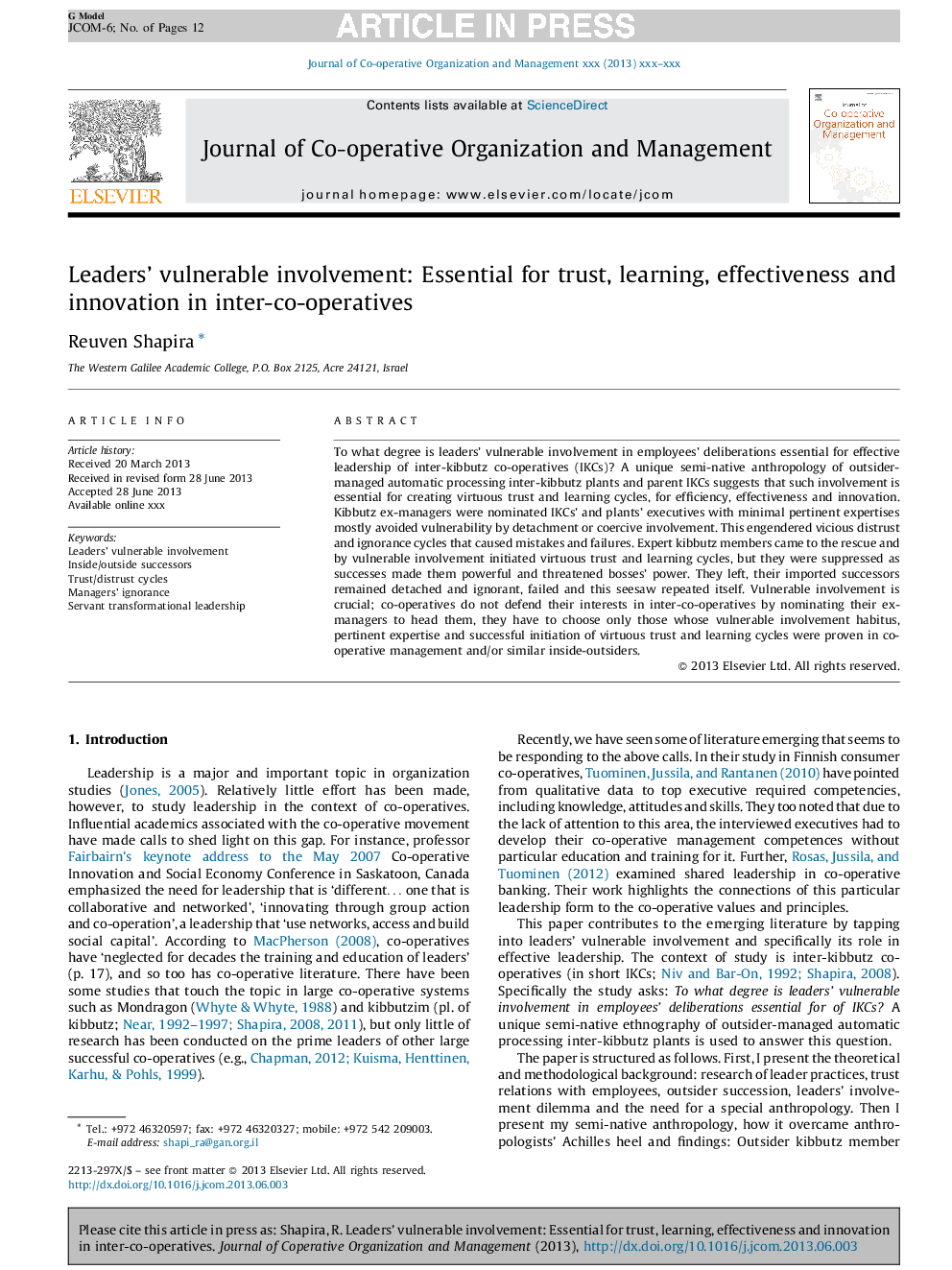| Article ID | Journal | Published Year | Pages | File Type |
|---|---|---|---|---|
| 10494134 | Journal of Co-operative Organization and Management | 2013 | 12 Pages |
Abstract
To what degree is leaders' vulnerable involvement in employees' deliberations essential for effective leadership of inter-kibbutz co-operatives (IKCs)? A unique semi-native anthropology of outsider-managed automatic processing inter-kibbutz plants and parent IKCs suggests that such involvement is essential for creating virtuous trust and learning cycles, for efficiency, effectiveness and innovation. Kibbutz ex-managers were nominated IKCs' and plants' executives with minimal pertinent expertises mostly avoided vulnerability by detachment or coercive involvement. This engendered vicious distrust and ignorance cycles that caused mistakes and failures. Expert kibbutz members came to the rescue and by vulnerable involvement initiated virtuous trust and learning cycles, but they were suppressed as successes made them powerful and threatened bosses' power. They left, their imported successors remained detached and ignorant, failed and this seesaw repeated itself. Vulnerable involvement is crucial; co-operatives do not defend their interests in inter-co-operatives by nominating their ex-managers to head them, they have to choose only those whose vulnerable involvement habitus, pertinent expertise and successful initiation of virtuous trust and learning cycles were proven in co-operative management and/or similar inside-outsiders.
Related Topics
Social Sciences and Humanities
Business, Management and Accounting
Business and International Management
Authors
Reuven Shapira,
